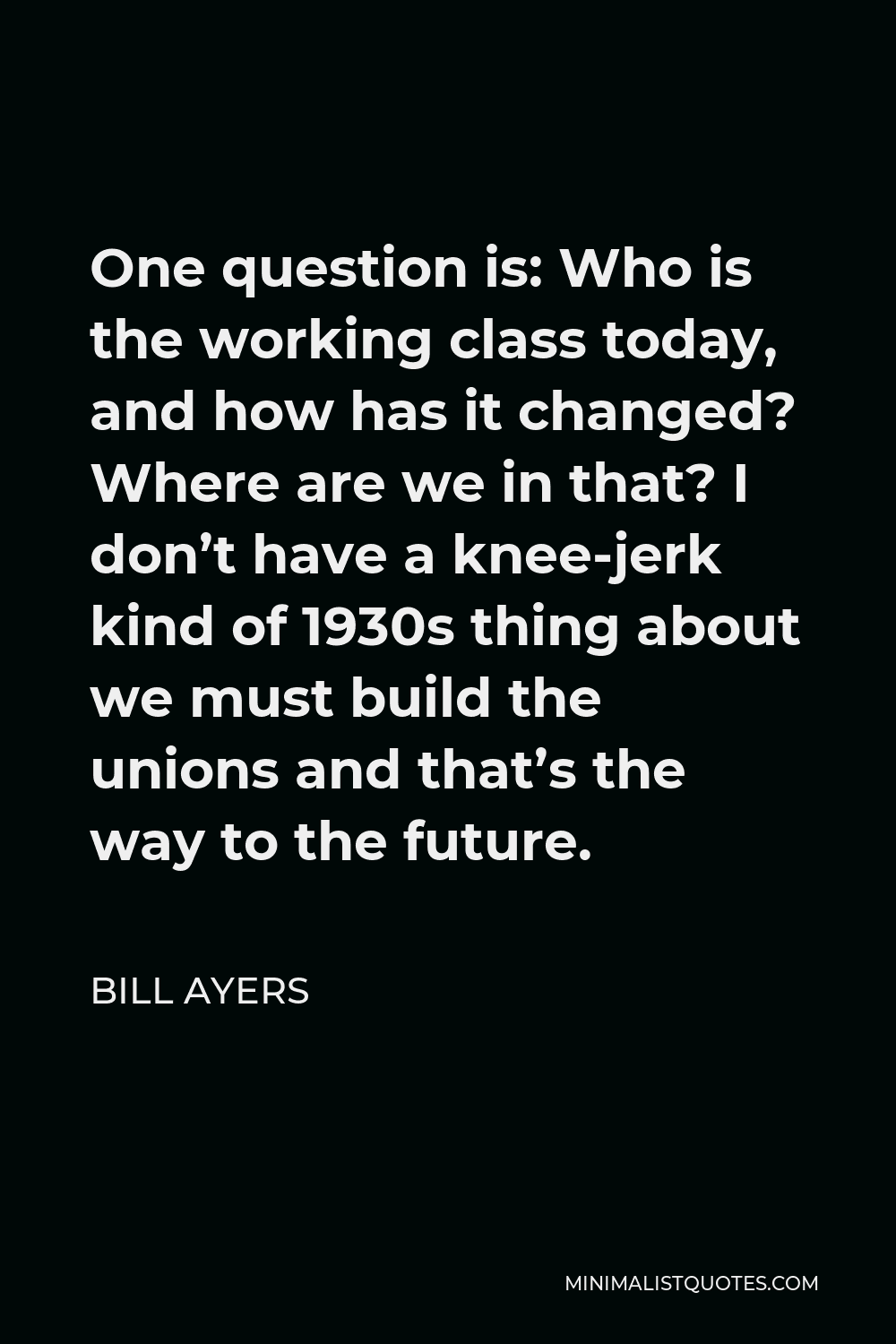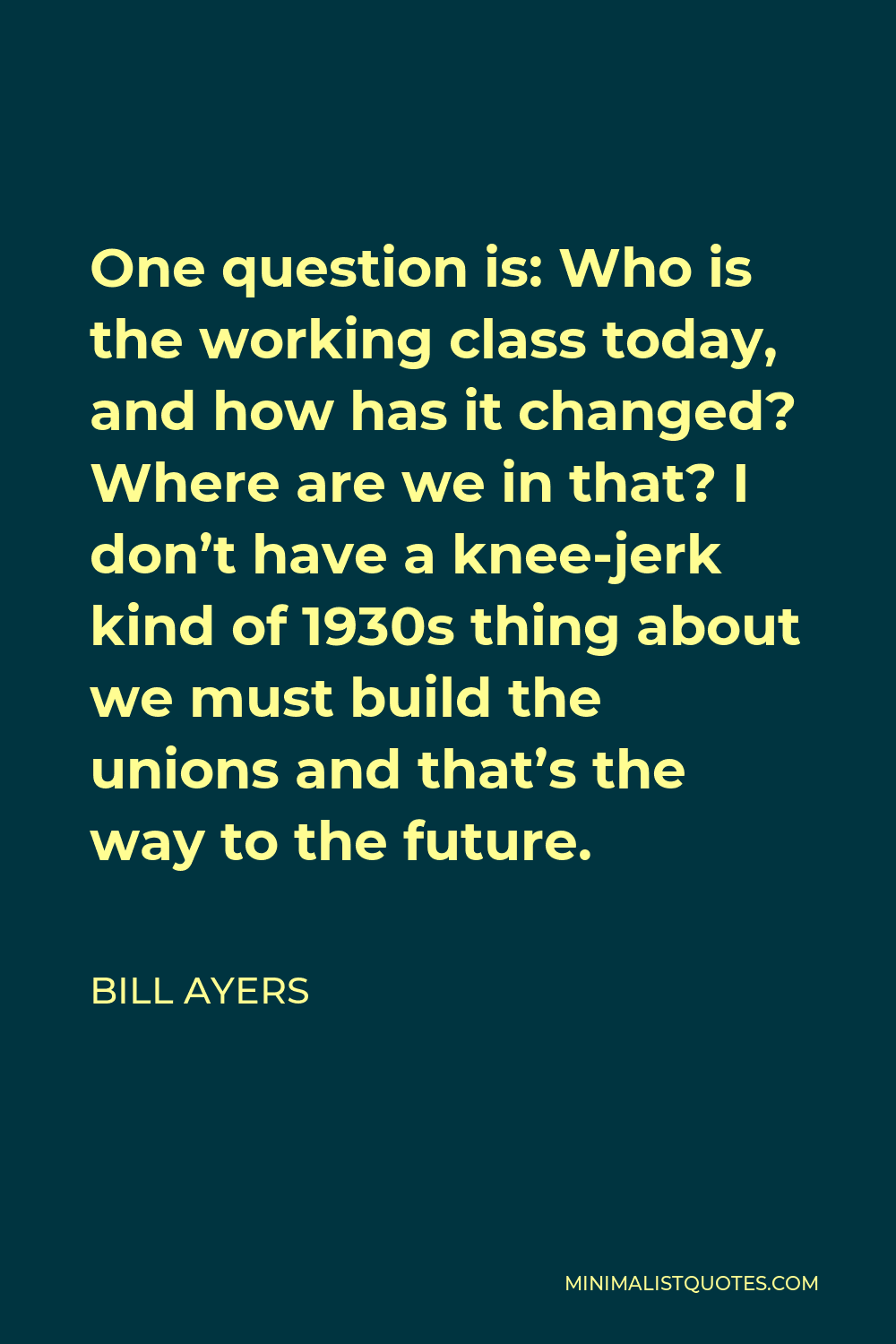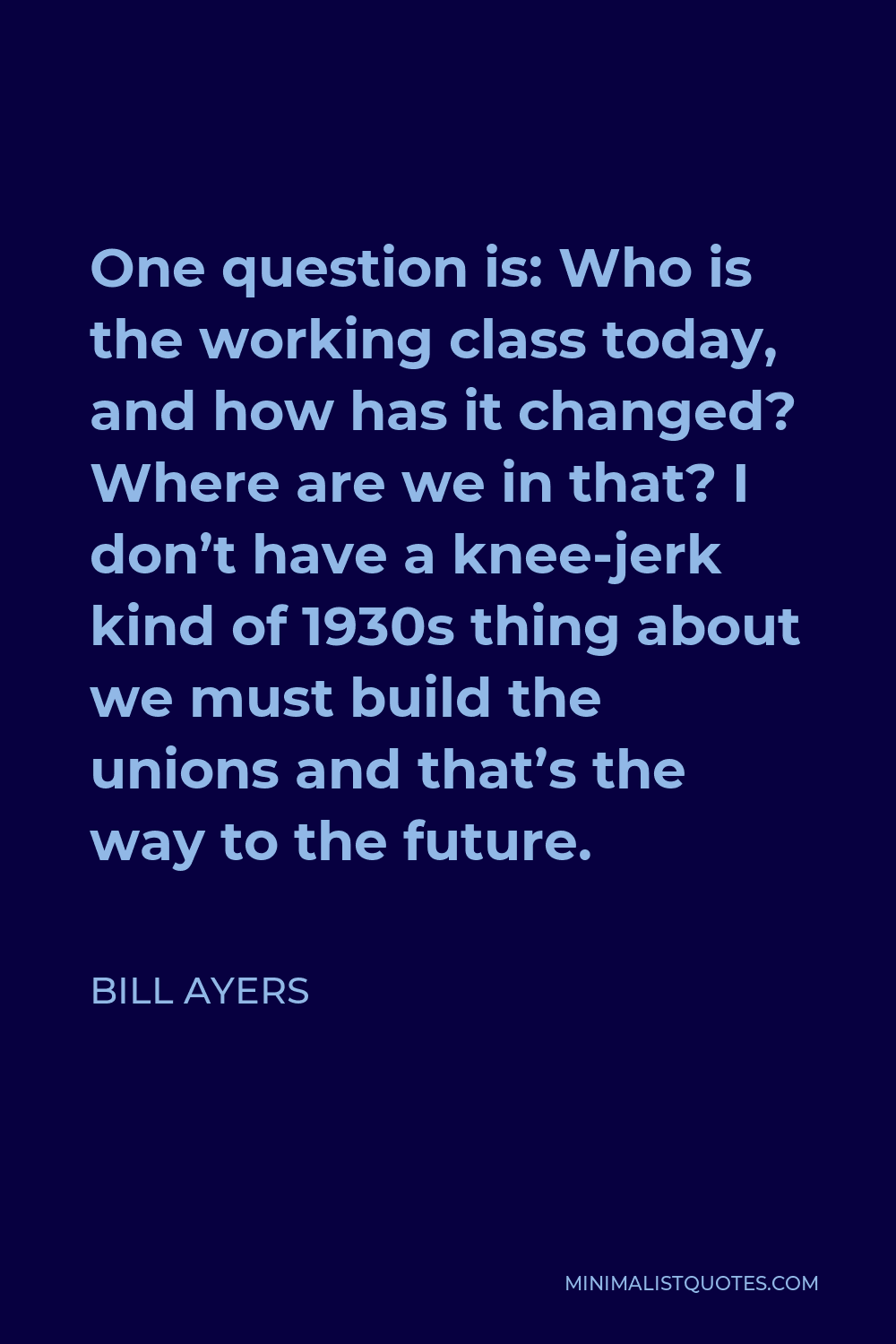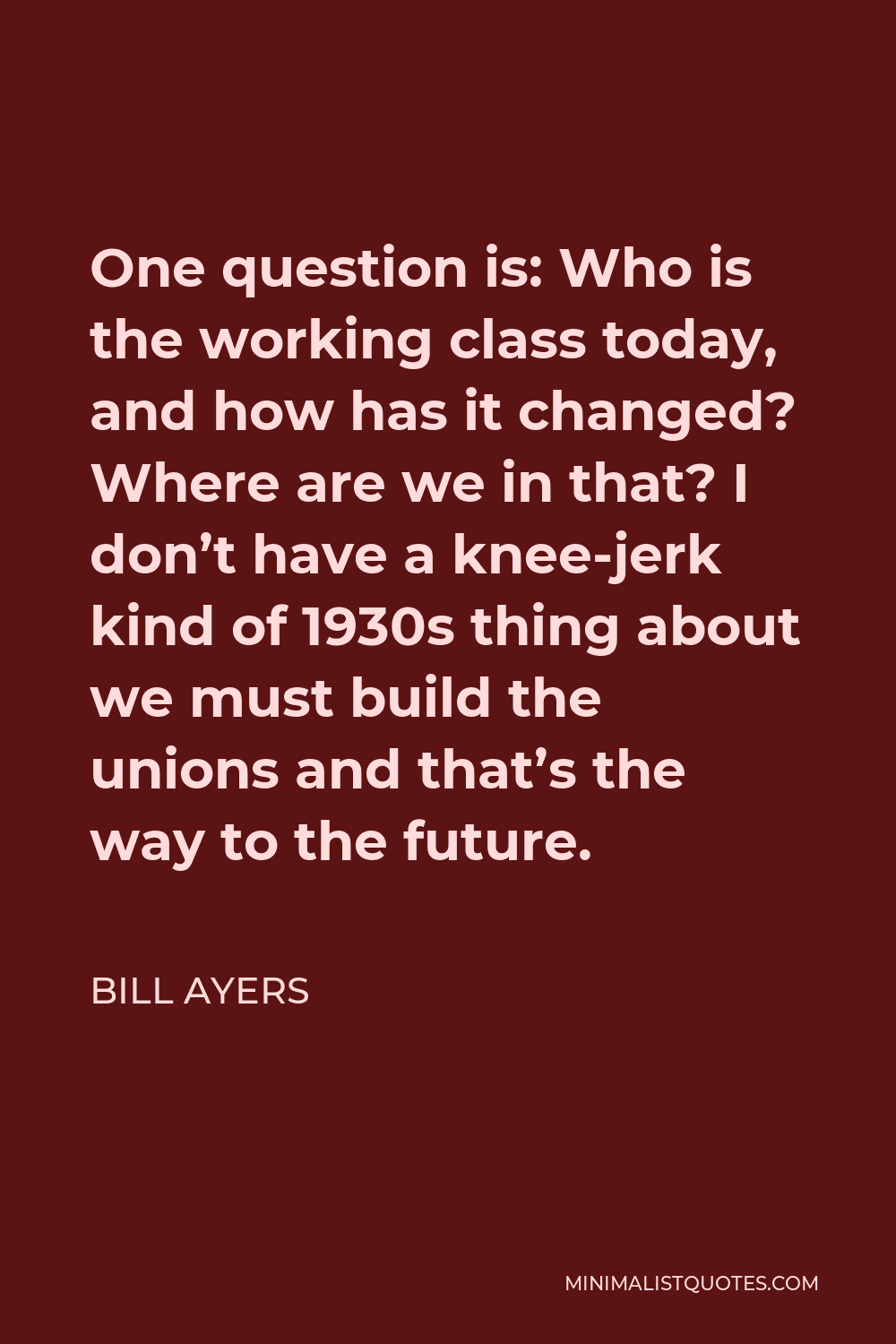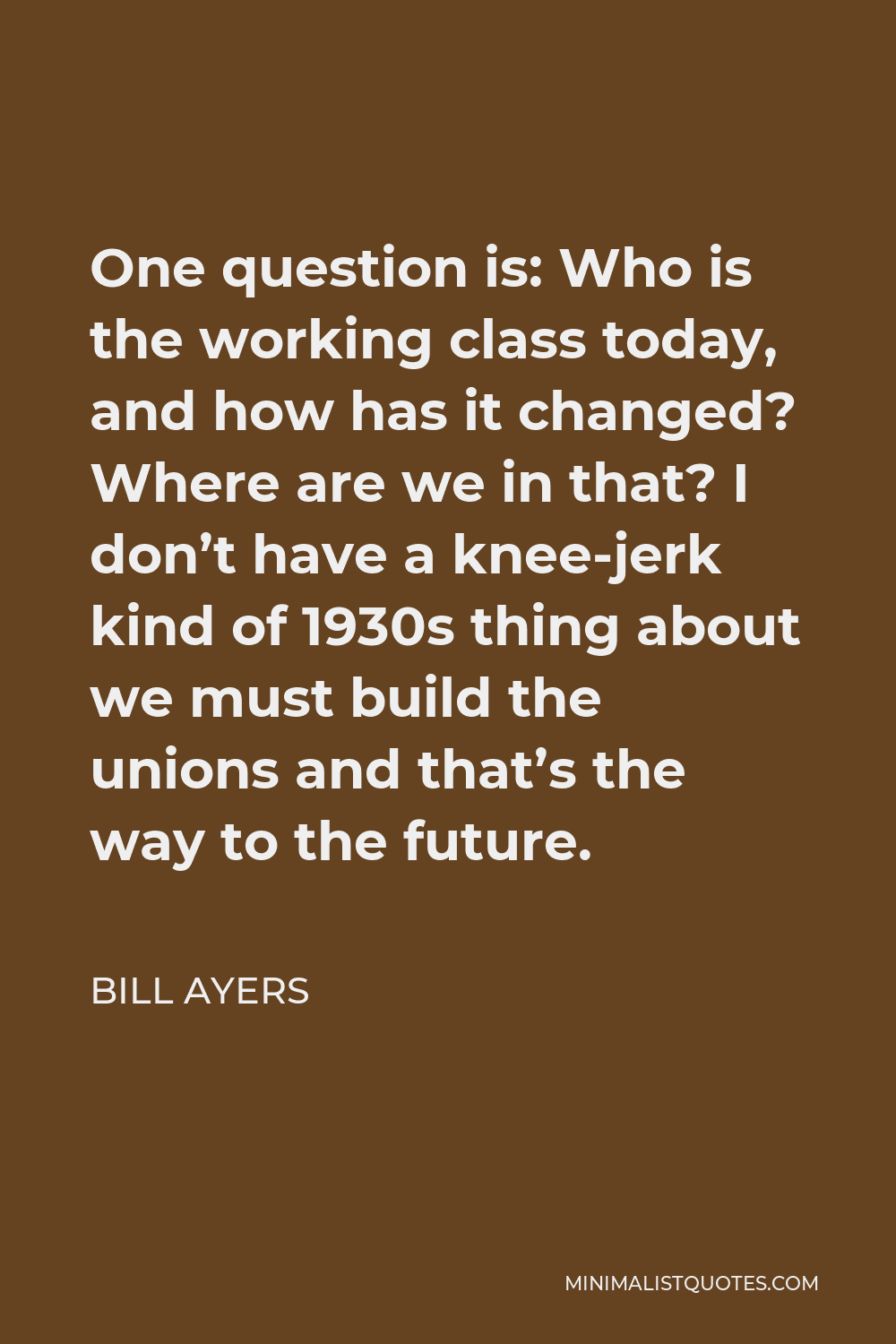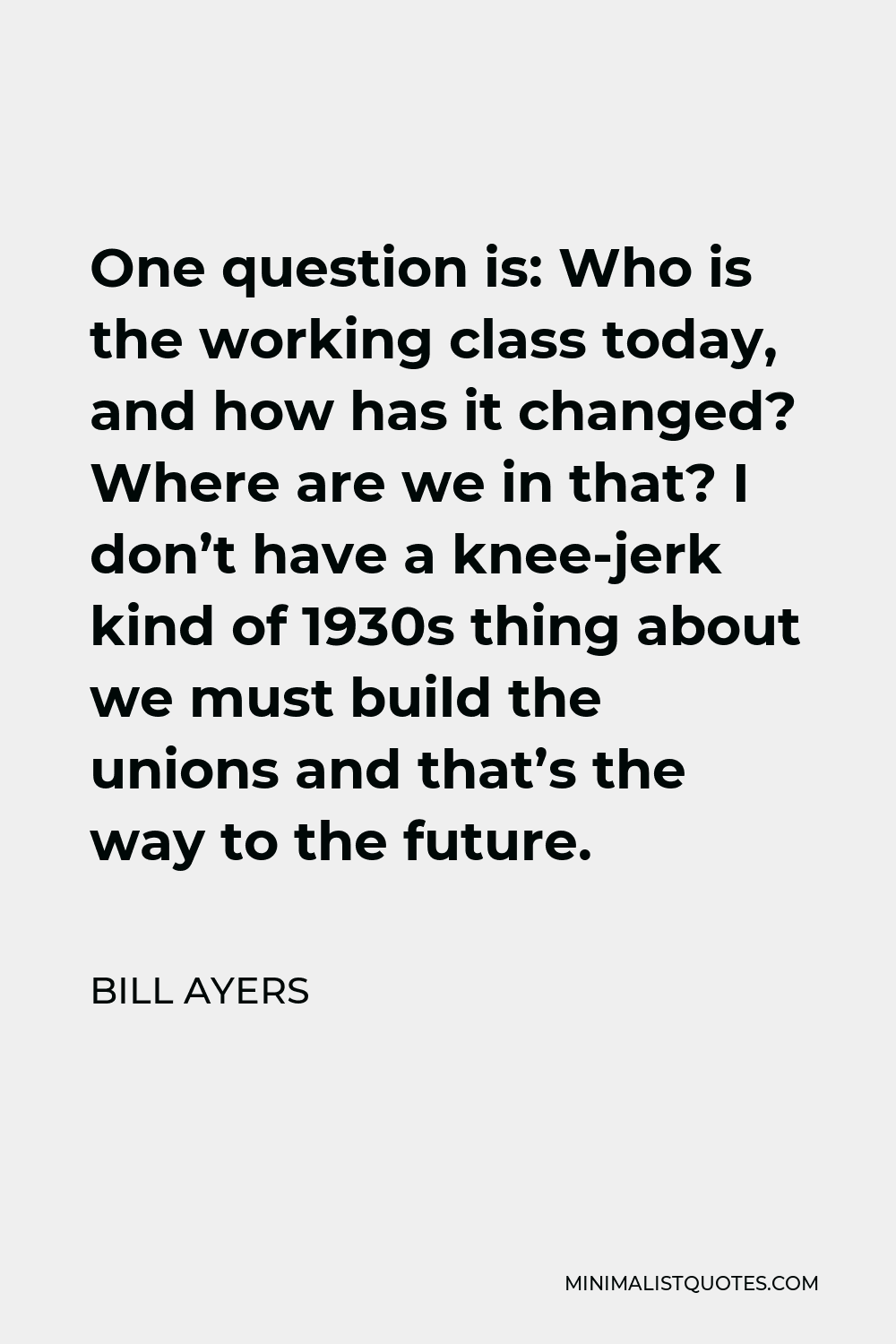If you read Martin Luther King speeches and sermons in the last two years of his life – you might want to – when I read these to my students, they think it’s Malcom X because it’s so radical.
BILL AYERSOne question is: Who is the working class today, and how has it changed? Where are we in that? I don’t have a knee-jerk kind of 1930s thing about we must build the unions and that’s the way to the future.
More Bill Ayers Quotes
-





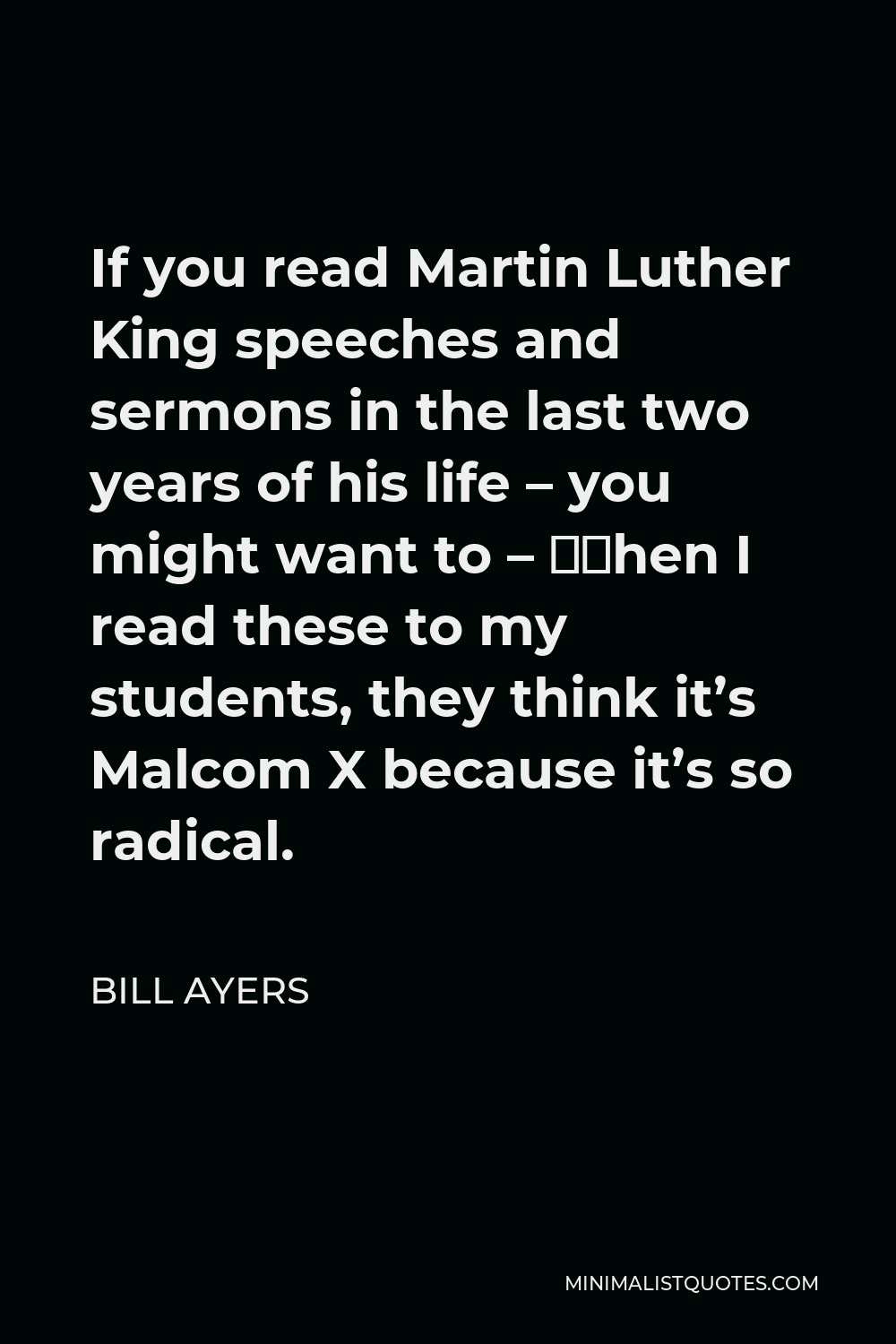
-





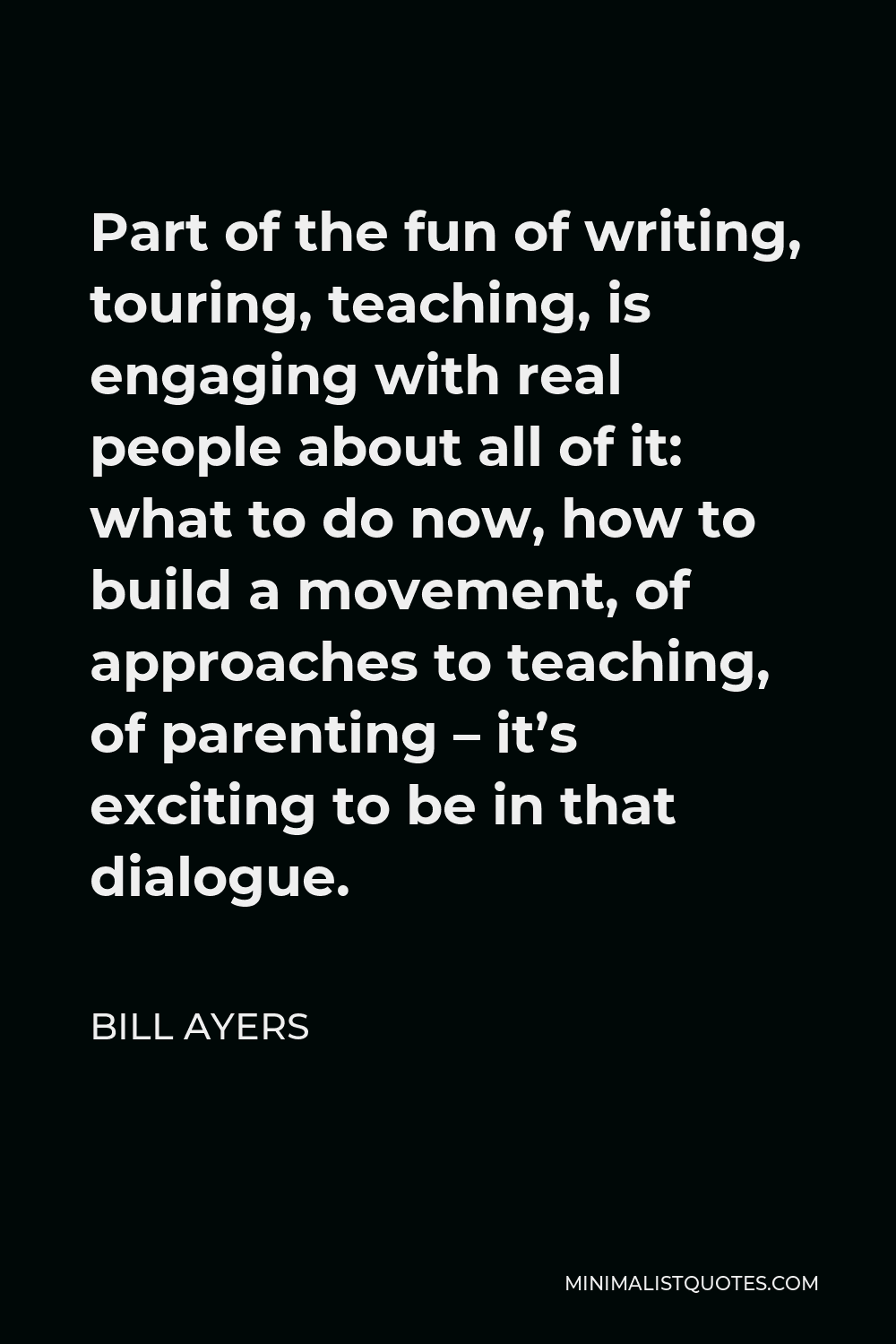
Part of the fun of writing, touring, teaching, is engaging with real people about all of it: what to do now, how to build a movement, of approaches to teaching, of parenting – it’s exciting to be in that dialogue.
BILL AYERS -





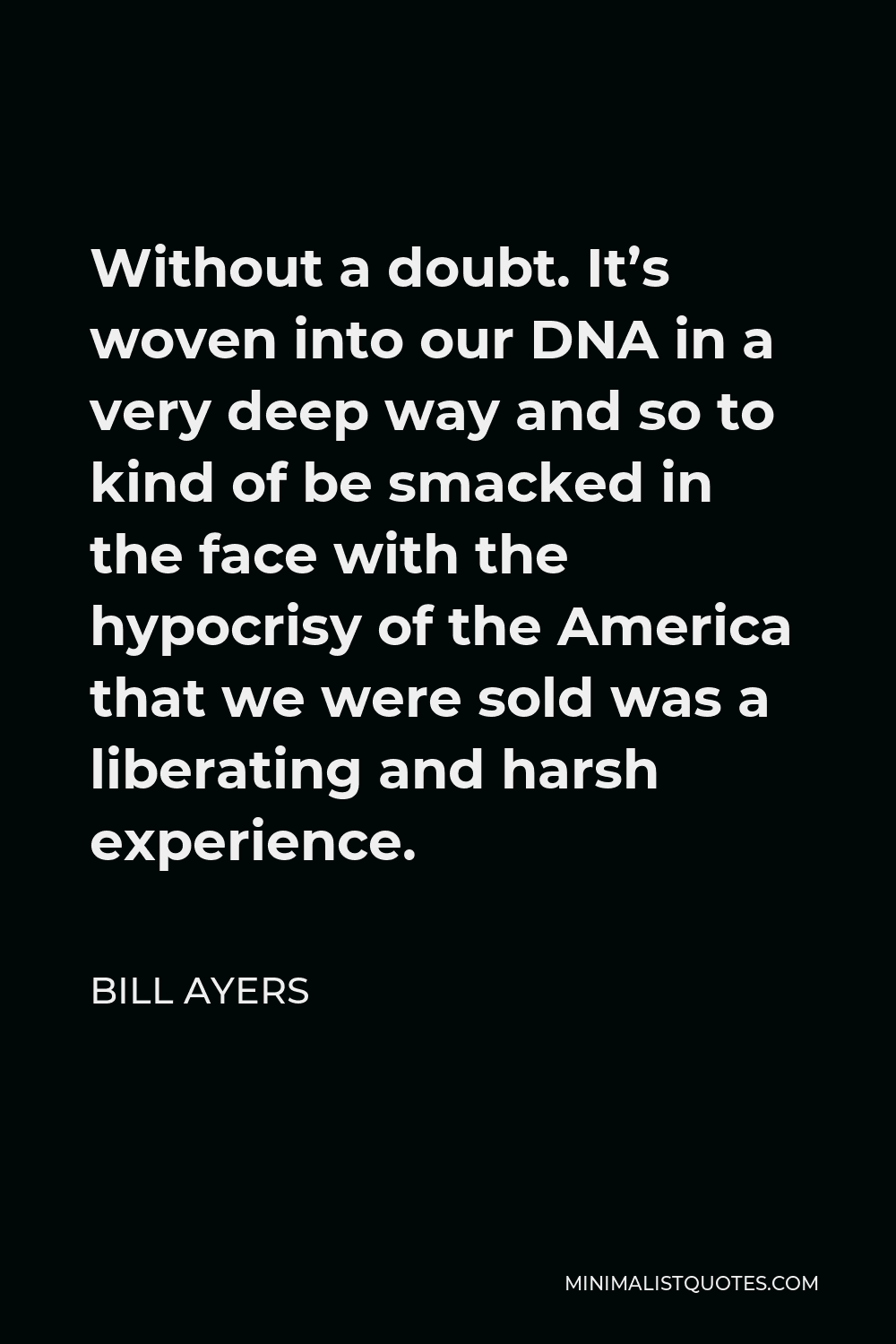
Without a doubt. It’s woven into our DNA in a very deep way and so to kind of be smacked in the face with the hypocrisy of the America that we were sold was a liberating and harsh experience.
BILL AYERS -





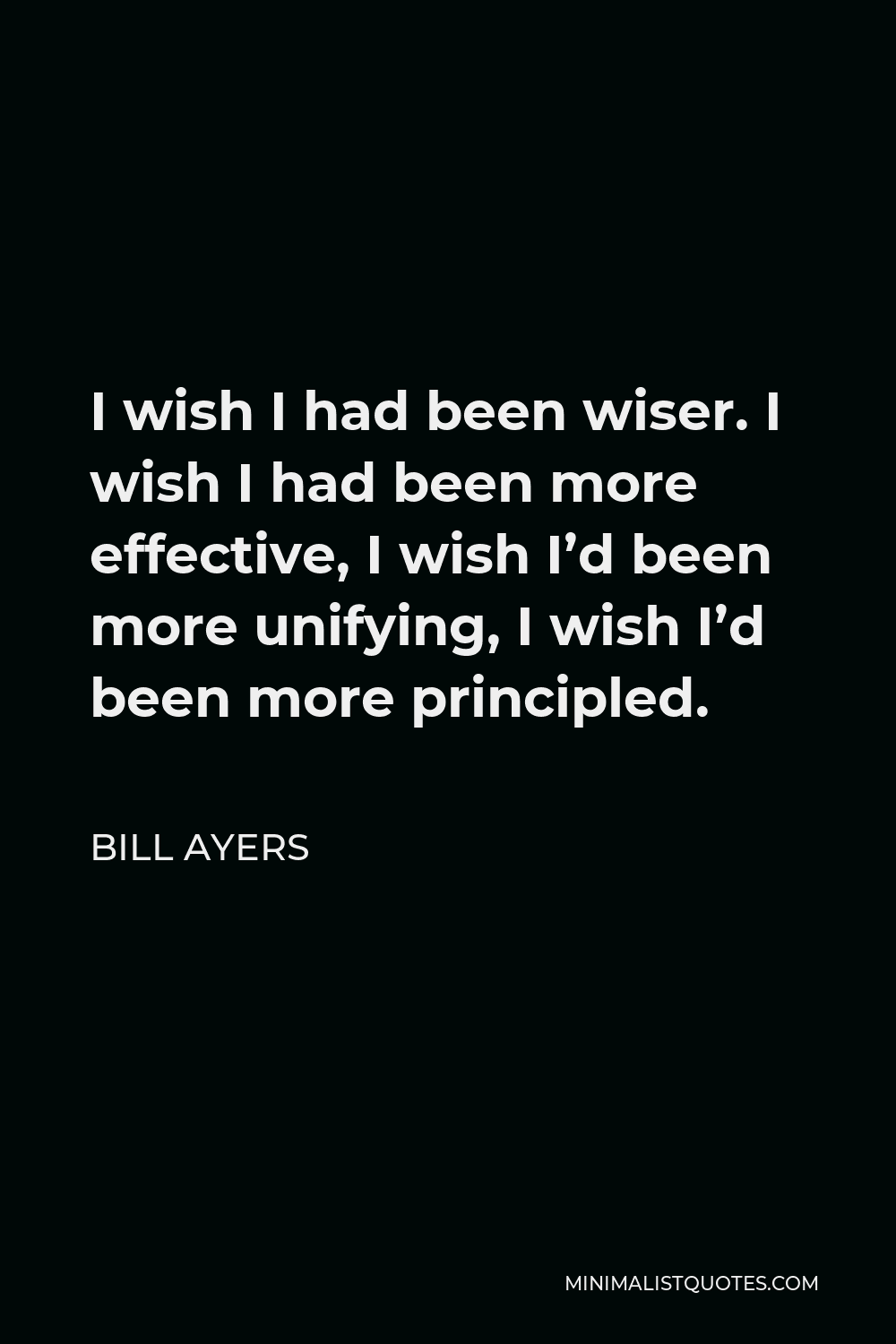
I wish I had been wiser. I wish I had been more effective, I wish I’d been more unifying, I wish I’d been more principled.
BILL AYERS -





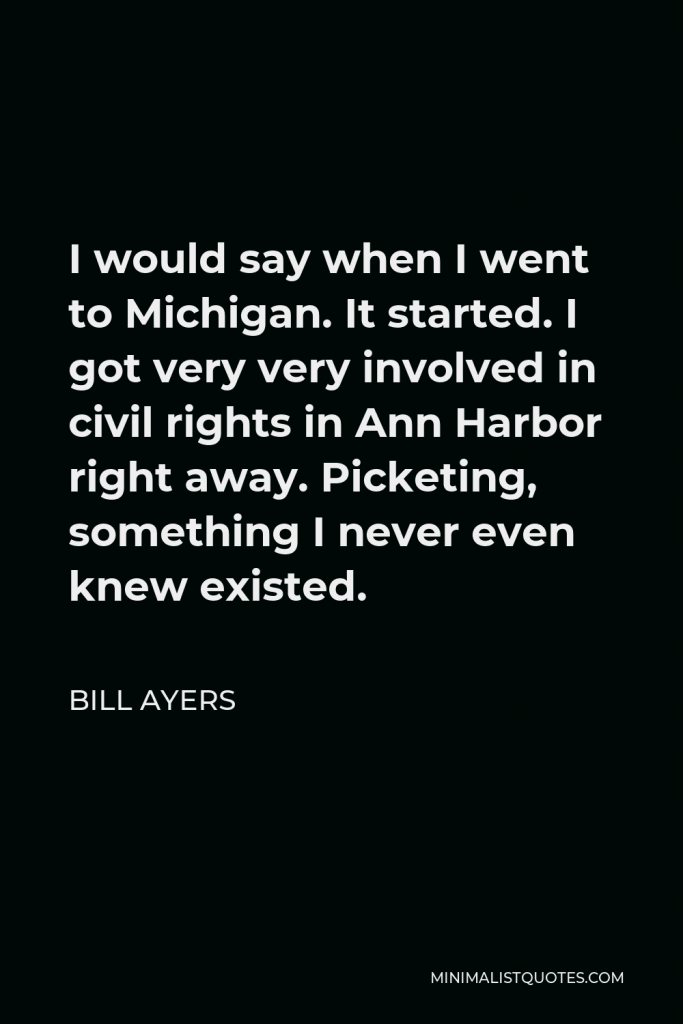

I would say when I went to Michigan. It started. I got very very involved in civil rights in Ann Harbor right away. Picketing, something I never even knew existed.
BILL AYERS -





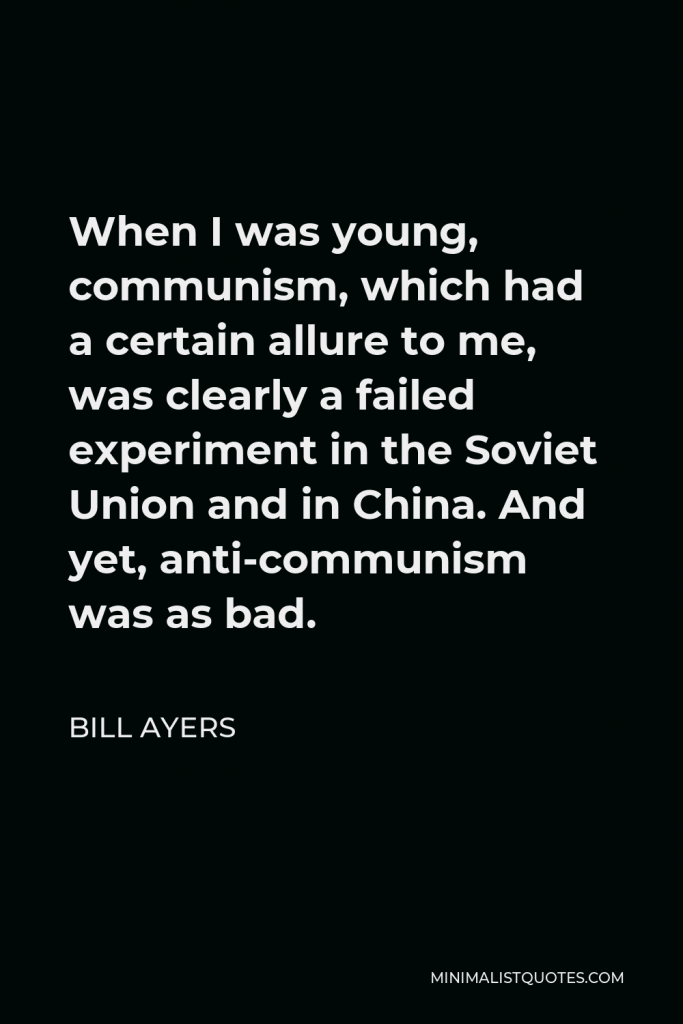

When I was young, communism, which had a certain allure to me, was clearly a failed experiment in the Soviet Union and in China. And yet, anti-communism was as bad.
BILL AYERS -





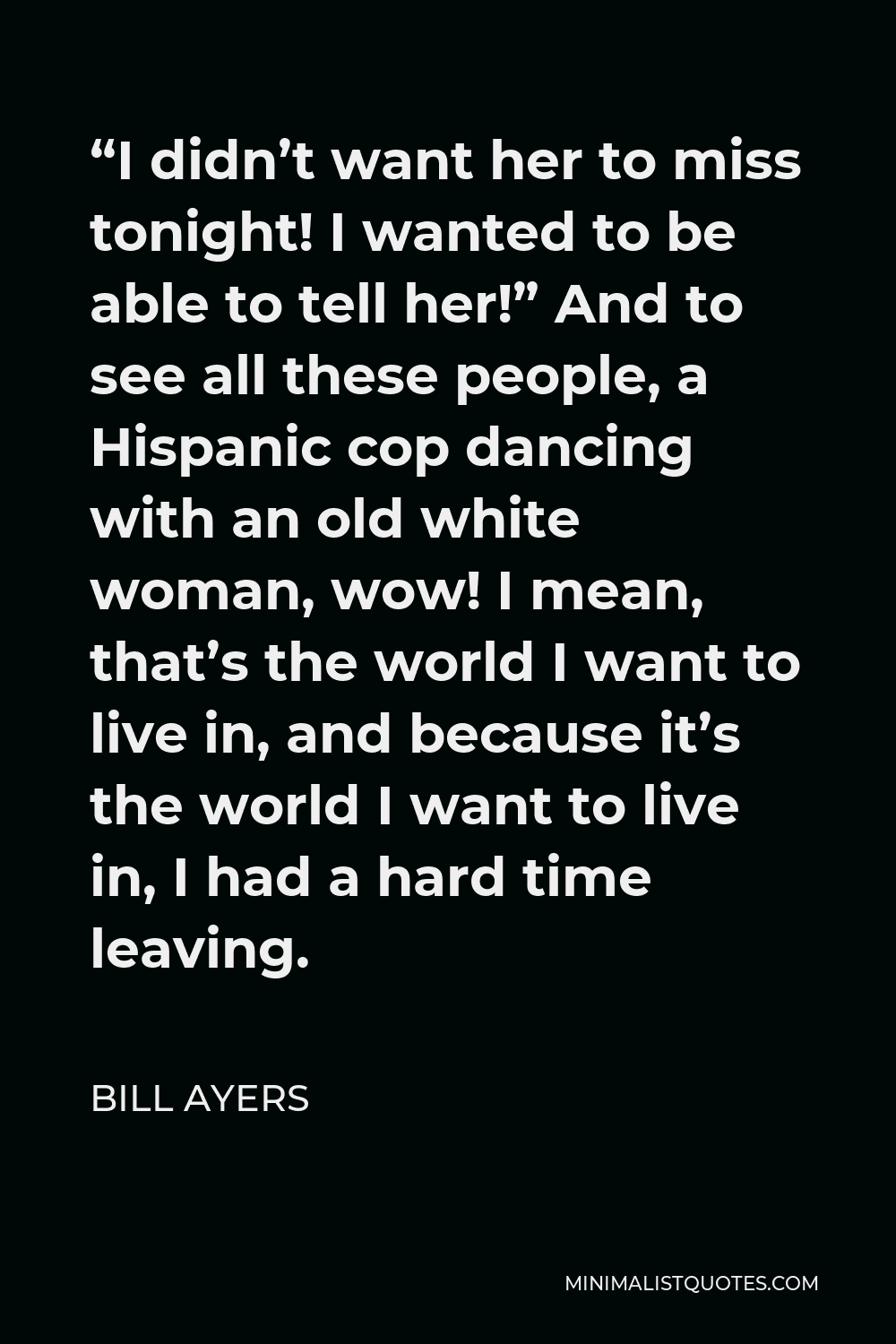
“I didn’t want her to miss tonight! I wanted to be able to tell her!” And to see all these people, a Hispanic cop dancing with an old white woman, wow! I mean, that’s the world I want to live in, and because it’s the world I want to live in, I had a hard time leaving.
BILL AYERS -





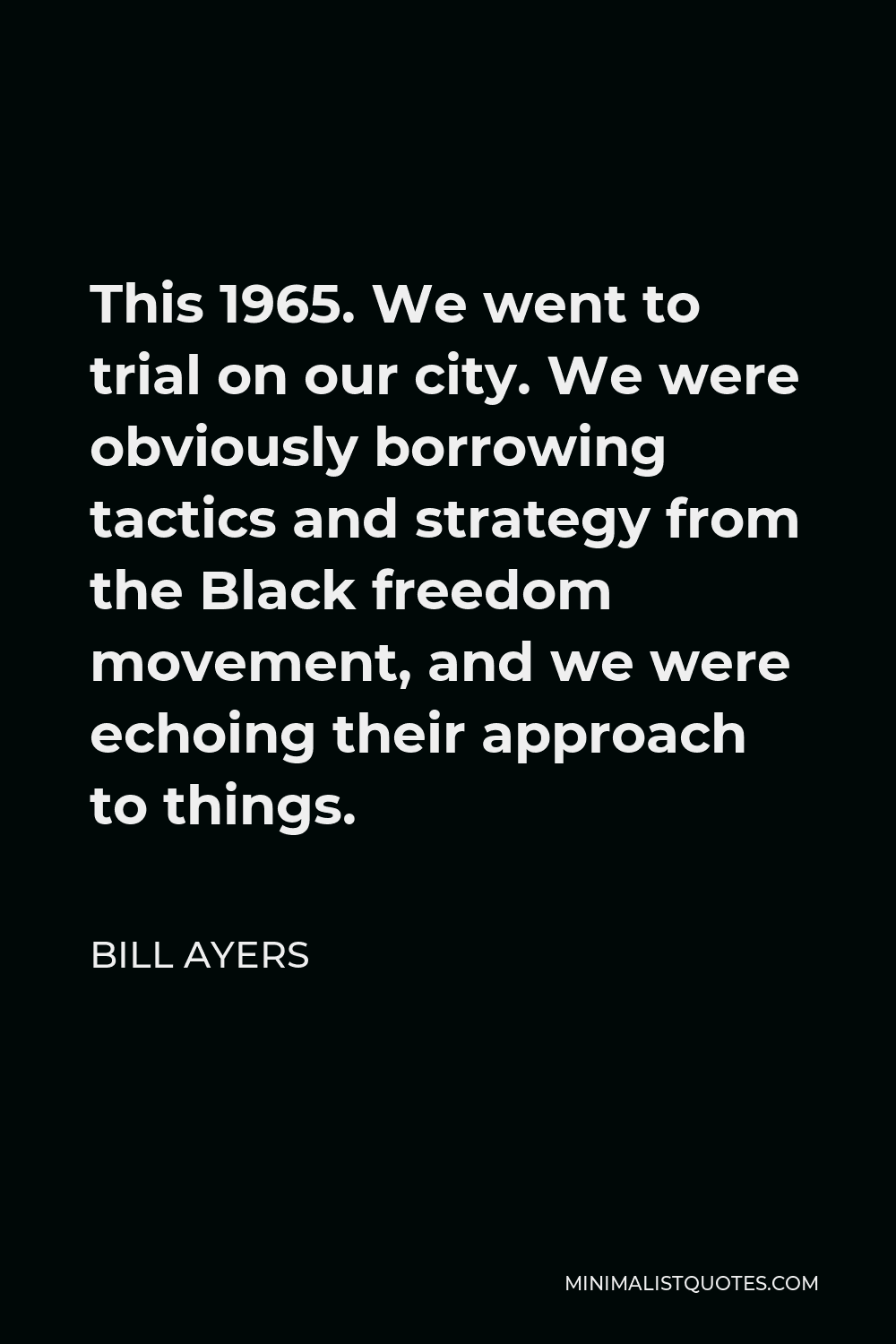
This 1965. We went to trial on our city. We were obviously borrowing tactics and strategy from the Black freedom movement, and we were echoing their approach to things.
BILL AYERS -





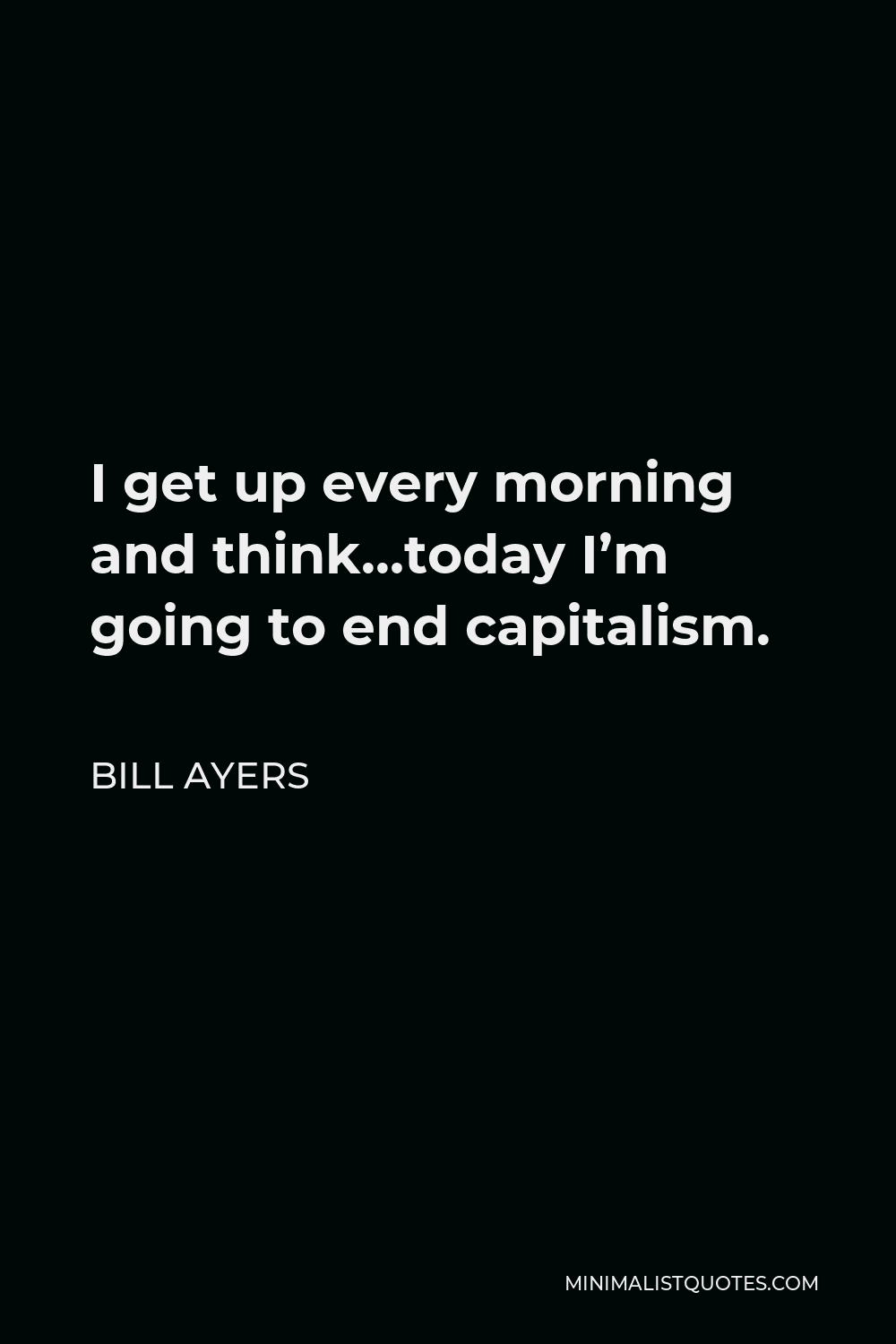
I get up every morning and think…today I’m going to end capitalism.
BILL AYERS -





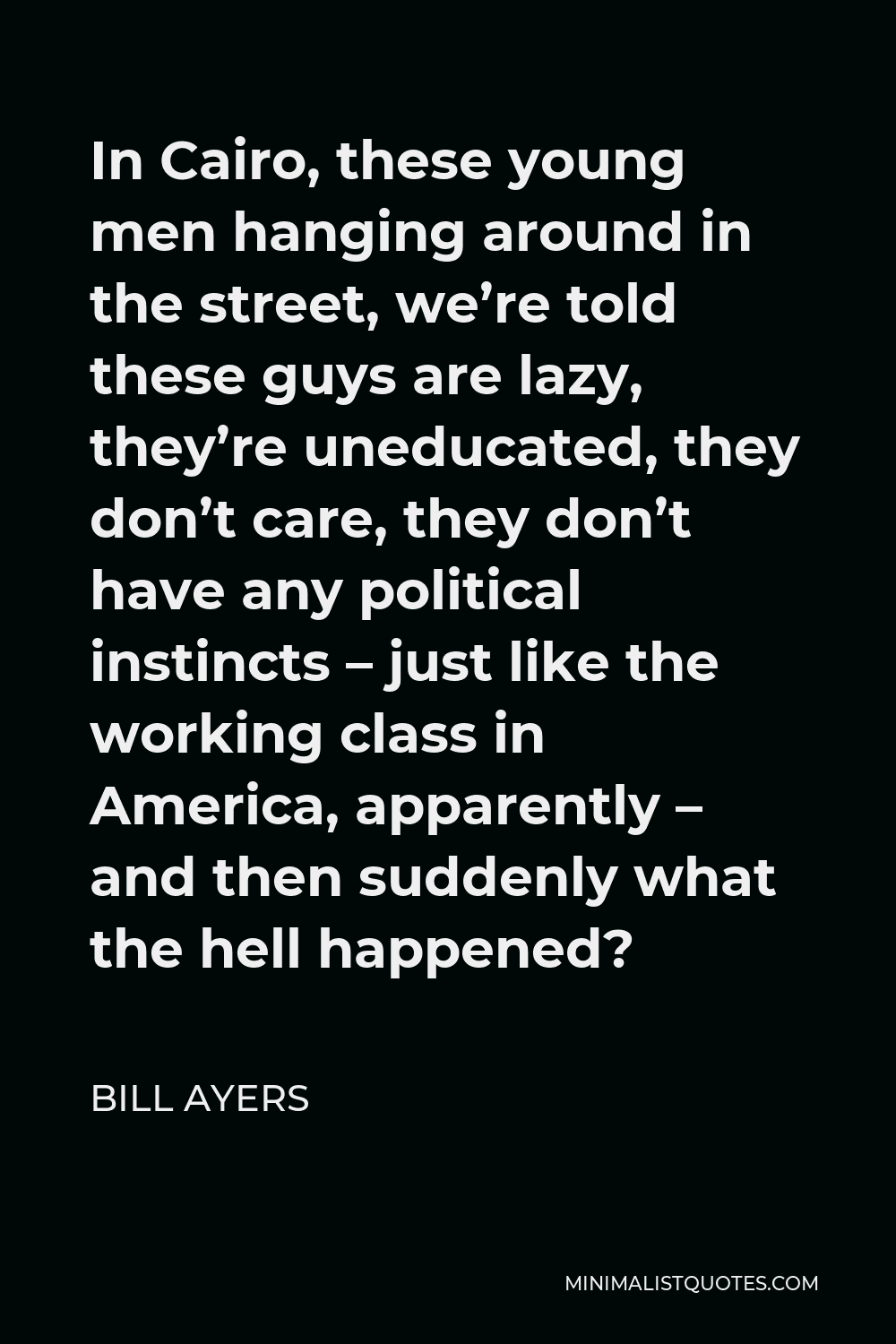
In Cairo, these young men hanging around in the street, we’re told these guys are lazy, they’re uneducated, they don’t care, they don’t have any political instincts – just like the working class in America, apparently – and then suddenly what the hell happened?
BILL AYERS -





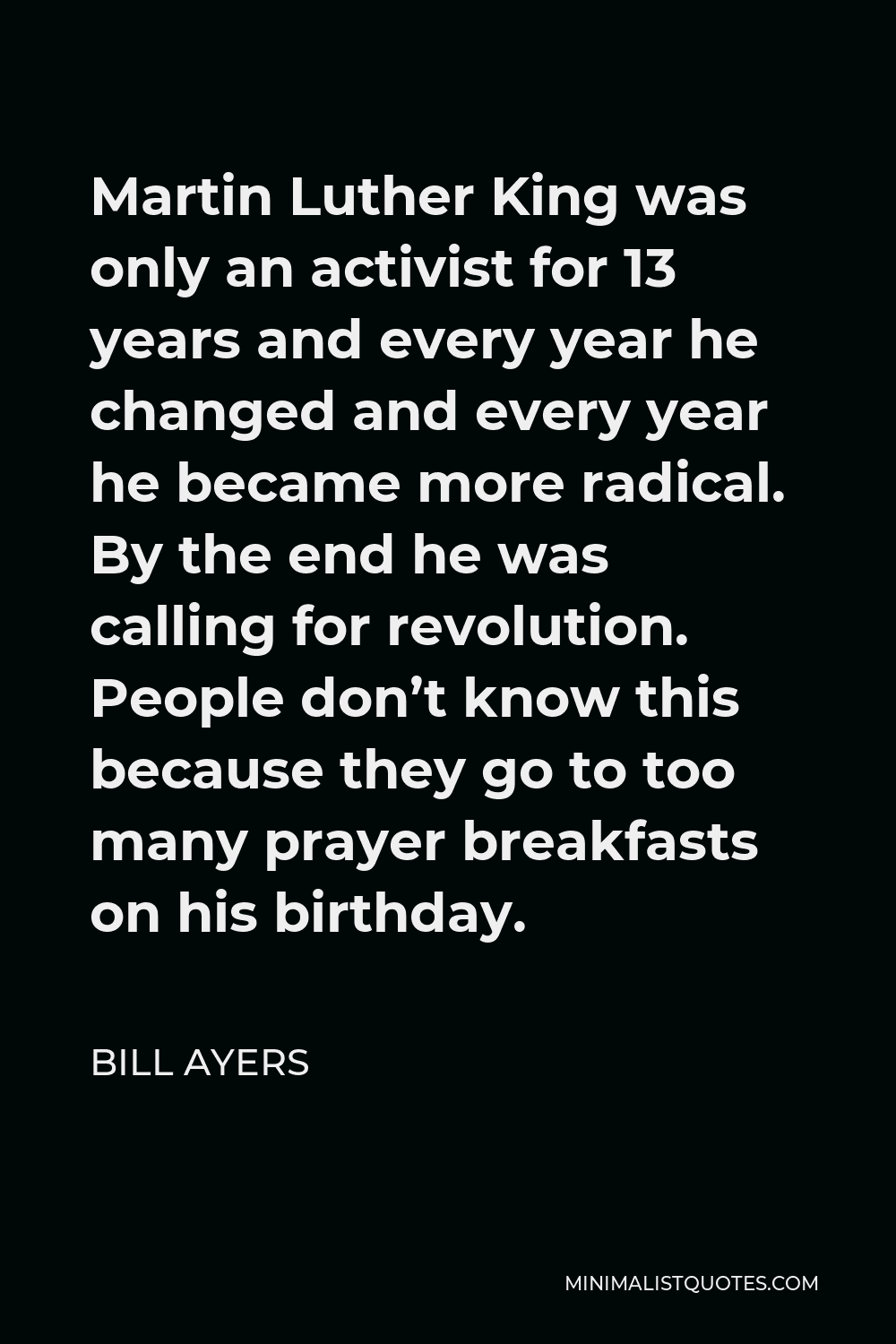
Martin Luther King was only an activist for 13 years and every year he changed and every year he became more radical. By the end he was calling for revolution. People don’t know this because they go to too many prayer breakfasts on his birthday.
BILL AYERS -





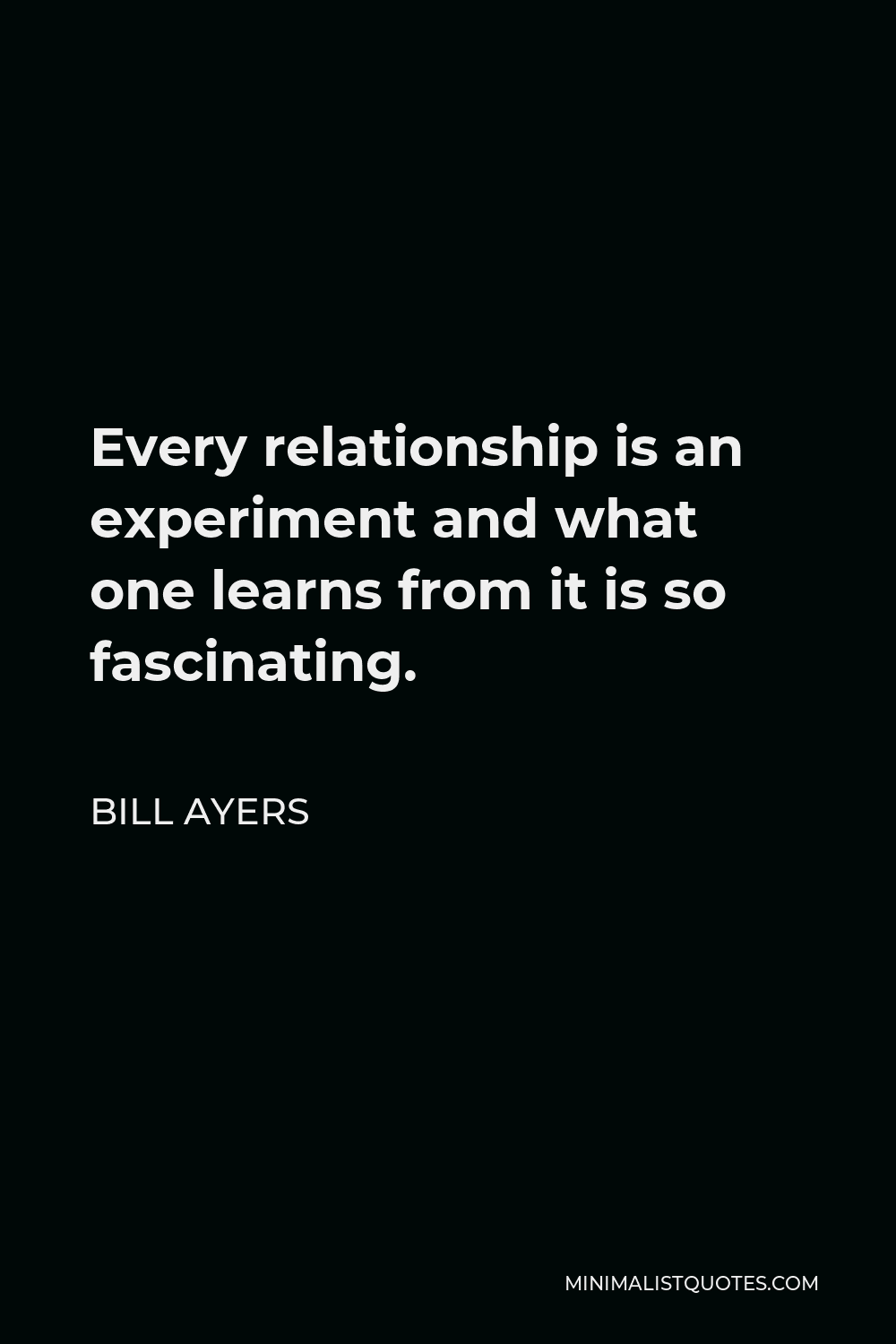
Every relationship is an experiment and what one learns from it is so fascinating.
BILL AYERS -





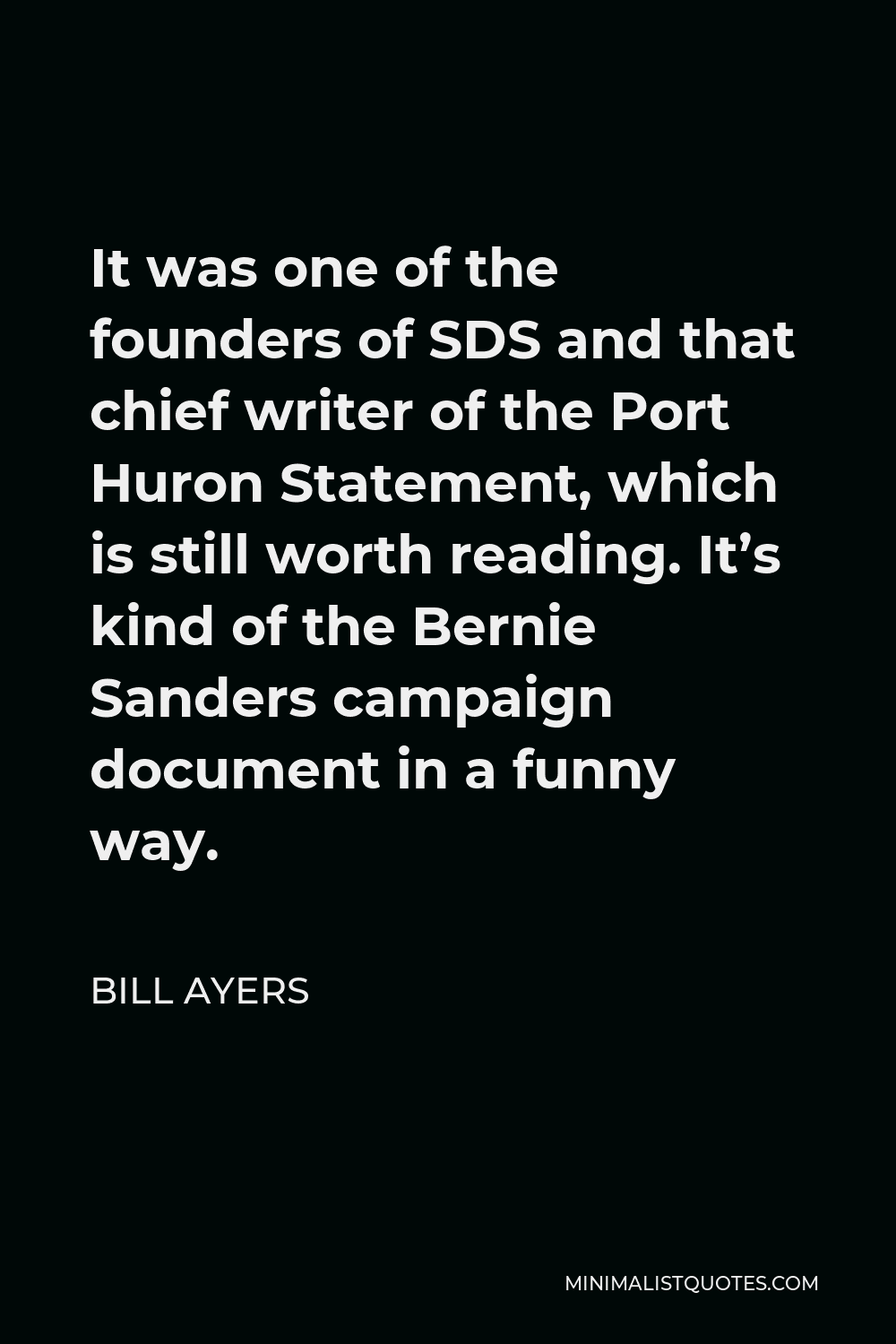
It was one of the founders of SDS and that chief writer of the Port Huron Statement, which is still worth reading. It’s kind of the Bernie Sanders campaign document in a funny way.
BILL AYERS -





![Bill Ayers Quote - Well, first of all I think that we have to be careful with terms like the working class, obviously. When [Karl] Marx wrote about the working class he was writing about something much more bounded than we’re talking about.](https://minimalistquotes.com/wp-content/uploads/2022/12/well-first-of-all-i-think-that-we-have-to-be-caref-683x1024.jpg)

Well, first of all I think that we have to be careful with terms like the working class, obviously. When [Karl] Marx wrote about the working class he was writing about something much more bounded than we’re talking about.
BILL AYERS -





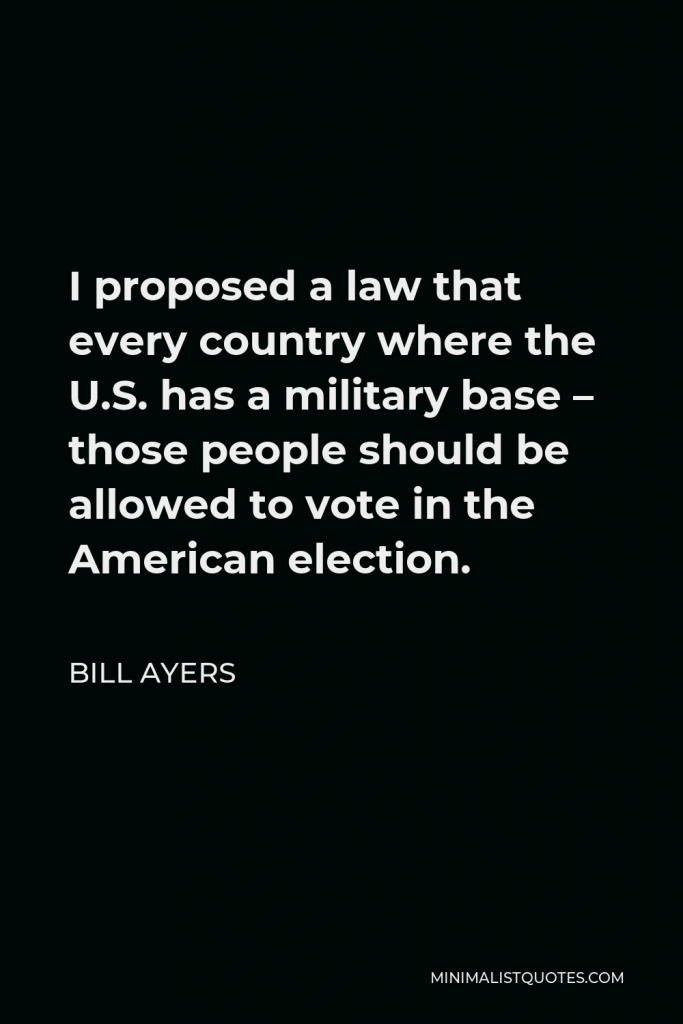

I proposed a law that every country where the U.S. has a military base – those people should be allowed to vote in the American election.
BILL AYERS -





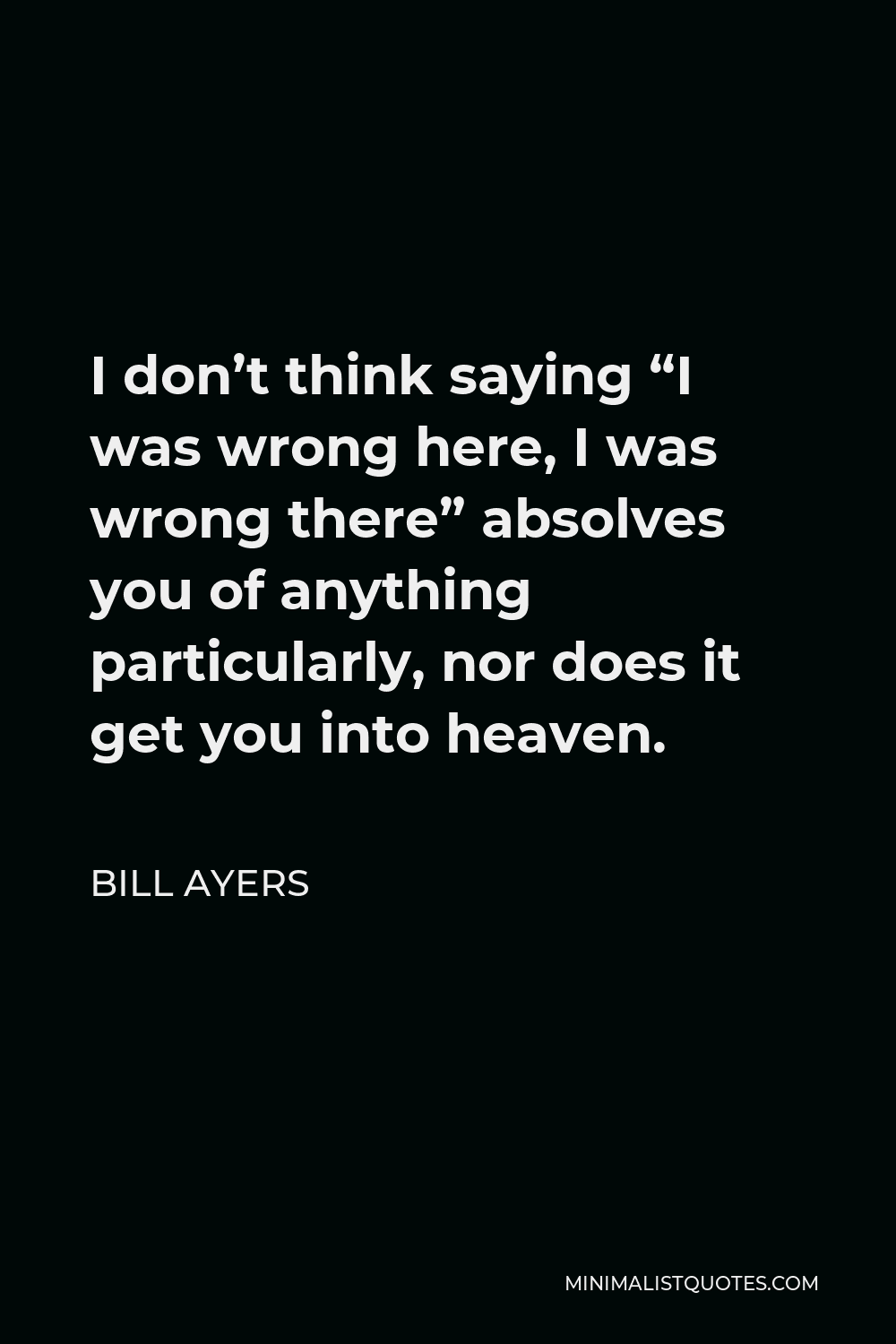
I don’t think saying “I was wrong here, I was wrong there” absolves you of anything particularly, nor does it get you into heaven.
BILL AYERS
